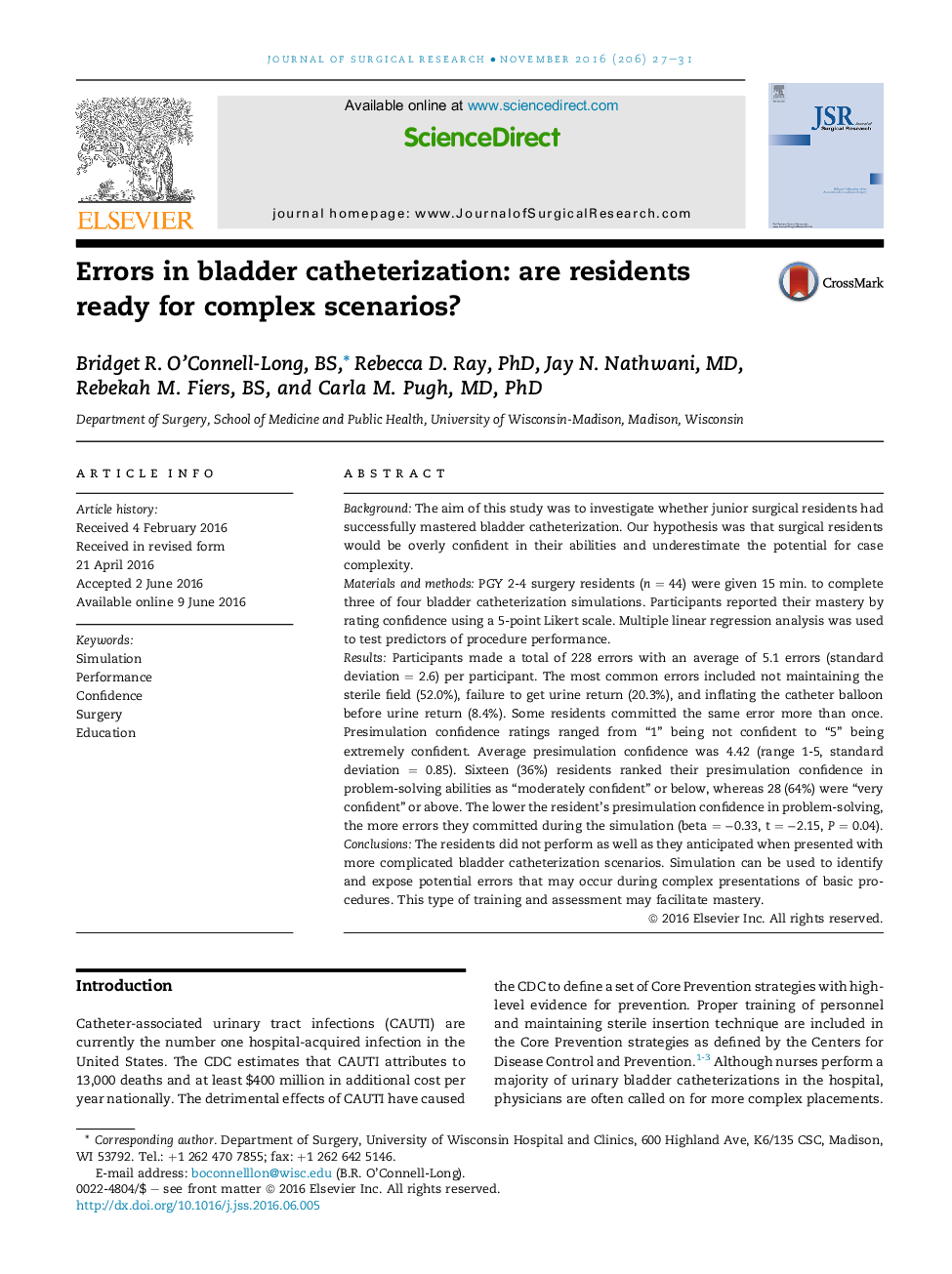| Article ID | Journal | Published Year | Pages | File Type |
|---|---|---|---|---|
| 4299070 | Journal of Surgical Research | 2016 | 5 Pages |
BackgroundThe aim of this study was to investigate whether junior surgical residents had successfully mastered bladder catheterization. Our hypothesis was that surgical residents would be overly confident in their abilities and underestimate the potential for case complexity.Materials and methodsPGY 2-4 surgery residents (n = 44) were given 15 min. to complete three of four bladder catheterization simulations. Participants reported their mastery by rating confidence using a 5-point Likert scale. Multiple linear regression analysis was used to test predictors of procedure performance.ResultsParticipants made a total of 228 errors with an average of 5.1 errors (standard deviation = 2.6) per participant. The most common errors included not maintaining the sterile field (52.0%), failure to get urine return (20.3%), and inflating the catheter balloon before urine return (8.4%). Some residents committed the same error more than once. Presimulation confidence ratings ranged from “1” being not confident to “5” being extremely confident. Average presimulation confidence was 4.42 (range 1-5, standard deviation = 0.85). Sixteen (36%) residents ranked their presimulation confidence in problem-solving abilities as “moderately confident” or below, whereas 28 (64%) were “very confident” or above. The lower the resident's presimulation confidence in problem-solving, the more errors they committed during the simulation (beta = −0.33, t = −2.15, P = 0.04).ConclusionsThe residents did not perform as well as they anticipated when presented with more complicated bladder catheterization scenarios. Simulation can be used to identify and expose potential errors that may occur during complex presentations of basic procedures. This type of training and assessment may facilitate mastery.
